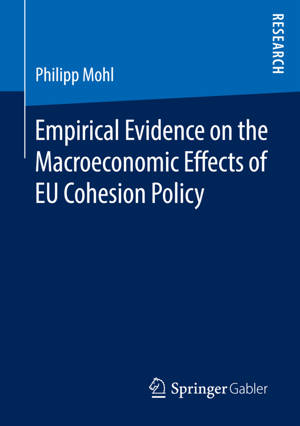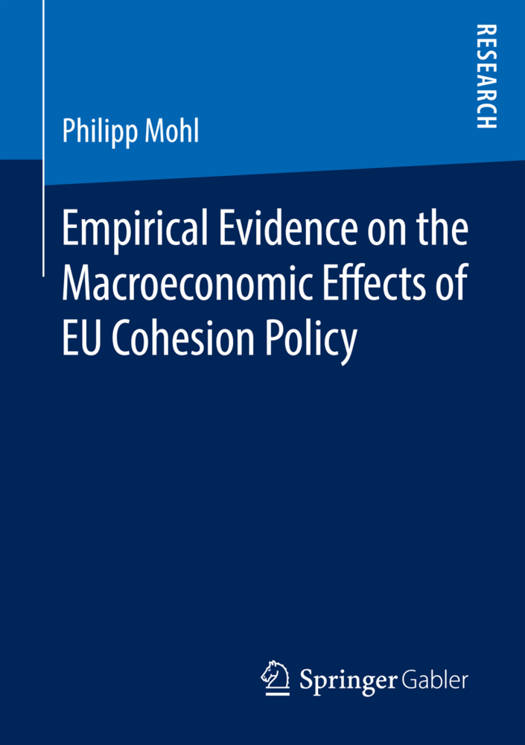
Door een staking bij bpost kan je online bestelling op dit moment iets langer onderweg zijn dan voorzien. Dringend iets nodig? Onze winkels ontvangen jou met open armen!
- Afhalen na 1 uur in een winkel met voorraad
- Gratis thuislevering in België vanaf € 30
- Ruim aanbod met 7 miljoen producten
Door een staking bij bpost kan je online bestelling op dit moment iets langer onderweg zijn dan voorzien. Dringend iets nodig? Onze winkels ontvangen jou met open armen!
- Afhalen na 1 uur in een winkel met voorraad
- Gratis thuislevering in België vanaf € 30
- Ruim aanbod met 7 miljoen producten
Zoeken
Empirical Evidence on the Macroeconomic Effects of EU Cohesion Policy
Philipp Mohl
Paperback | Engels
€ 52,95
+ 105 punten
Omschrijving
Philipp Mohl evaluates the macroeconomic effects of EU Cohesion Policy with the help of empirical methods. His findings indicate that in particular the part of EU Cohesion Policy which is spent for the poorest regions (the so-called Objective 1 funding) has a positive and statistically significant impact on economic growth. Moreover, the employment effects of EU Cohesion Policy seem to be conditional on the educational attainment, i.e., in particular regions with a high share of high-skilled population tend to benefit from EU funds. Finally, the author does not find evidence that EU funds significantly increase public investment in the EU countries, which points to a crowding out of national investment. Overall, the gained insights contribute to a more profound understanding of the macroeconomic effects of EU Cohesion Policy, which is essential to design an effective and efficient EU spending system.
Specificaties
Betrokkenen
- Auteur(s):
- Uitgeverij:
Inhoud
- Aantal bladzijden:
- 173
- Taal:
- Engels
Eigenschappen
- Productcode (EAN):
- 9783658138516
- Verschijningsdatum:
- 12/05/2016
- Uitvoering:
- Paperback
- Formaat:
- Trade paperback (VS)
- Afmetingen:
- 148 mm x 210 mm
- Gewicht:
- 254 g

Alleen bij Standaard Boekhandel
+ 105 punten op je klantenkaart van Standaard Boekhandel
Beoordelingen
We publiceren alleen reviews die voldoen aan de voorwaarden voor reviews. Bekijk onze voorwaarden voor reviews.











